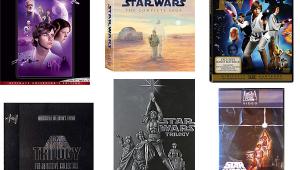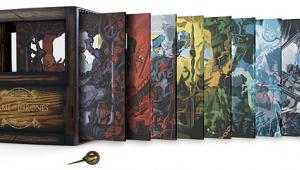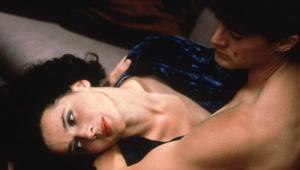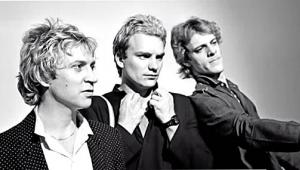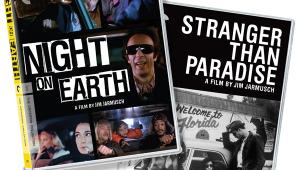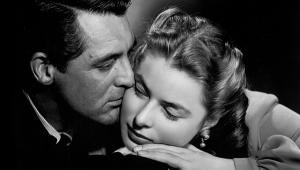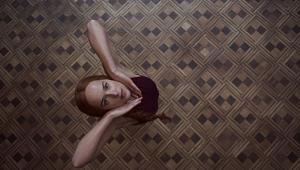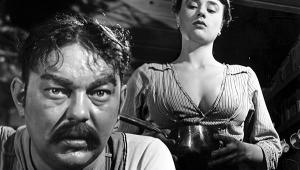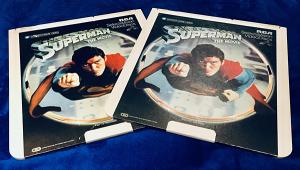The Marx Brothers Silver Screen Collection
Picture **
Sound **
Film ****
At first blush, the new Marx brothers set looks like a wonderful update on some timeless classics. And the price appears a bargain at $10/disc in a lush package. But optimism gives way to reservation when you realize that there is less here than meets the eye.
 Universal Home Video presents the Marx brothers' first five theatrical releases to celebrate 75 years of "Marxist" movie history with their latest DVD compilation: The Marx Brothers Silver Screen Collection. The set includes the only five films that starred all four of the performing comic maestros: Groucho, Chico, Harpo and Zeppo in some of their most beloved and irreverent comedies: The Cocoanuts (1929), Animal Crackers (1930), Monkey Business (1931), Horse Feathers (1932) and Duck Soup (1933). These films, originally made for Paramount, are considered by many fans to be their best aside from A Night at the Opera put out by MGM in 1935.
Universal Home Video presents the Marx brothers' first five theatrical releases to celebrate 75 years of "Marxist" movie history with their latest DVD compilation: The Marx Brothers Silver Screen Collection. The set includes the only five films that starred all four of the performing comic maestros: Groucho, Chico, Harpo and Zeppo in some of their most beloved and irreverent comedies: The Cocoanuts (1929), Animal Crackers (1930), Monkey Business (1931), Horse Feathers (1932) and Duck Soup (1933). These films, originally made for Paramount, are considered by many fans to be their best aside from A Night at the Opera put out by MGM in 1935.
These early films offer the viewer a glimpse into the chaotic genius of the first family of comedy. Known for their winning combination of vaudevillian screwball bits, social satire, irreverent barrage of wit, double innuendoes, and zany slapstick, the Marx brothers' brand of humor is a timeless ode to comedic anarchy. Their anti-establishment—and many times surreal—humor inspired comics and wise guys for decades afterward.
Though 75 years of cinematic history has passed, each of the characters the Marx brothers brought to life has endured as an icon. Their individual shticks have become endearing caricatures that aren't soon forgotten and are often impersonated. Who can forget Groucho's persona as a cigar-smoking, wise cracker with a stooped gait and grease-painted mustache? Or how about Harpo, the lovable pantomiming mute with his curly hair, top hat, and honking horn who loved to play the harp and chase women? Then there's Chico, with his thick Italian accent and con-artist antics, Pinocchio hat, and whimsical piano flourishes. And finally Zeppo, who tagged along as the beleaguered straight man.
These films were released just as talkies were emerging in the late '20s and early '30s. Even so, they are filled with barely controlled anarchy and plenty of sexual innuendo. At first glance, they might come across as light and fluffy, but the Marx brothers set themselves apart by wrapping their humor in political and moral statements, with Groucho barking one-liners so fast that the double meanings often fly past your ears unless you go back to study them.
Having started their career in vaudeville, the brothers had a smash success when The Cocoanuts ran on Broadway in 1925. With the advent of movies with sound, it seemed natural that their mad-comedic performances would translate well to celluloid and resonate with a much larger audience. Thus, when The Cocoanuts was released in 1929, it was essentially a filmed version of their stage performance, as was Animal Crackers, which ran on Broadway in 1928 and was then filmed in 1930.
Although their best work was to come later, The Cocoanuts saw the Marx brothers quickly establishing their character shticks, which never changed from film to film. Plots, themes, and shenanigans do vary in each movie, hitting a peak in what is considered by many Marxists to be their best work, Duck Soup. Groucho plays an upstart dictator of the mythical land Freedonia, and he is championed by wealthy heiress Mrs. Teasdale, underplayed by Margaret Dumont (who is often cited by fans as the "fifth" Marx brother due to her frequent appearances). Although Duck Soup was considered a box-office disaster, today it is ranked fifth on the 100 Funniest American Films list by the American Film Institute. The plot was controversial enough at the time to have had Mussolini ban the film in Italy, reasoning that it was a subversive attack on him and his government. However, typical of their anarchist modus operandi, the biting political satire is thinly disguised beneath a series of hilarious bits such as the infamous mirror sequence in which Harpo (dressed as Groucho) tries to avoid detection in a broken mirror frame by pantomiming Groucho's every move with perfect timing.
One of the high points of the DVD set is observing first-hand the technical evolution of filmmaking as filmmakers said farewell to the silent era. With the advent of the talkies, microphones and actors had to be carefully placed to pick up the dialog clearly. In order to eliminate extraneous set noise, precautions were taken such as wetting down paper props to "dampen" noise. One of the classic comic bits in The Cocoanuts comes during the "why a duck?" (viaduct) scene, about 44 minutes into the film. The humor of the scene is further amplified when you see the paper blueprint that Groucho is holding dripping wet with water!
As expected, these films reveal their age, exhibiting technical flaws and the ravages of time. Although the later movies benefit from advancing technology, all of these transfers suffer from graininess, spotting, dirt, scratches, flicker, and soft or blurry focus. The sound often has problems with warble, hiss, hum, muffled dialog, boomy set noise, and uneven audio levels. In addition, there are many curious edits in each of the films, at times making it hard to distinguish whether these are due to print damage or archaic film production. Horse Feathers is one of the worse offenders, with a rapid series of edits about 33 minutes into the film.
Though The Cocoanuts has sustained the most wear, it does look like it had some restoration work done for this DVD. As with all the films in the set, this one begins with a relatively acceptable transfer from 35mm. But at a reel change 27 minutes into the film, the picture regresses into a spliced, low-grade transfer from a 16mm print. This happens about four times throughout the picture, with a total of about 30 minutes of sub-standard material. It's disappointing to see these classic films not fully restored, but it's hard to know if the source material would allow for much improvement. Regardless of these sometimes distracting flaws, the transfers are still acceptable with the black-and-white image and sharpness steadily improving as the collection progresses chronologically. Duck Soup is clearly the best-looking transfer of the lot, with the monaural soundtrack generally coherent and likely an accurate approximation of the original.
Visual flaws aside, the set's biggest disappointment is the lack of bonus material. With the exception of The Cocoanuts and Monkey Business, the original theatrical trailers are included on each film's disc, and there is also an entire disc reserved for "special features." But this disc only includes three mildly entertaining and short interviews from NBC's Today Show: Harpo in 1961 (7 mins); Groucho in 1963 (4 1/2 mins); and finally Harpo's son, William, in 1985 (4 1/2 mins). With the enormous amount of archived material out there, it was surprising that these resources were ignored for potential documentaries and audio commentary which would have added greatly to the collectibility of this release.
Groucho Marx is often quoted as saying, "I find television very educating. Every time somebody turns on the set, I go into the other room and read a book." Certainly he would have enjoyed this release's saving grace, a 40-page booklet featuring an abbreviated biography, poster art, photos, chapter selections, and notes on each film.
In spite of its shortcomings, the set affords a nice introduction to the Marx brothers, including some of their best work packaged in a beautiful volume. But with the lack of extras in this set and room for improved restoration, perhaps we can look forward to a more definitive collector's release somewhere down the line.
- Log in or register to post comments


